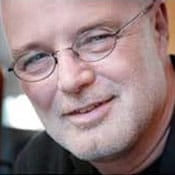Editors' Note: This article is part of the Patheos Public Square on the Future of Faith in America: Progressive Christianity. Read other perspectives here.
"A religion will be what its adherents make of it," I heard a Muslim intellectual say on a radio interview a while back. I think that's as true of Christianity in its many forms as any other faith.
Studying trends or making predictions about the future can be profoundly disempowering, suggesting to people that the future is largely determined and all we can do is try to prepare and adjust. Far better, I think, to imagine possible scenarios and then decide where our energies should be leveraged.
In other words, if we ask, "Which possible future is most morally, ethically, and spiritually desirable, and how can we contribute?", I believe we will experience a better future than if we ask, "Which possible future is most likely, and how can we prepare and adjust?"
Before commenting on a desired future for "progressive Christianity," some definition is in order. I believe the term comprises progressive wings in Catholicism, Orthodoxy, and Protestantism. These wings can be easily contrasted with conservative wings and moderate wings in this way:
Conservative wings believe that we're sliding down a slippery slope into a dark and dangerous future, so we should hold on to what remains from better days in the past and resist change.
Progressive wings believe that we slid down a slippery slope long ago and are in the process of climbing to a better place, so we should develop prophetic imagination that gives us a vision for desirable change that we pursue creatively.
Moderate folks try to negotiate between the other two.
Because religious institutions are often dominated by conservative and moderate voices, faith-rooted progressives often find themselves on the outside, knocking on the door to propose needed change. They knock through books, websites, blogs, Twitter feeds, and public speeches, through the planting of new communities and the building of networks and movements, along with through political means (i.e., through the protocols of denominational polity) and educational means (i.e., through curricula for children, youth, seminarians, and adults).
I believe that progressive Christians are not merely proposing superficial and incremental changes. I believe we are proposing profound and even epochal changes. In my current writing project (Converting Christianity), I refer to them as conversions.
First is the conversion to centering Christian faith in a way of life rather than a system of beliefs. Christianity as a system of beliefs focuses on a list of doctrines. Legitimacy is proven not by life, not by heart, not by action, but by correctness or conformity. Conservative Protestants, Catholics, and Orthodox differ in their lists, but they are united in their assumption that it is correctness defined as conformity that determines legitimacy. There is a history to the development of belief-system Christianity, a history rooted more in the era of Constantine than in the era of Jesus and the apostles. Any challenge to such a long-standing tradition should not be undertaken unadvisedly or lightly.
But in light of the history of belief-system Christianity — a mixed history in which colonialism, racism, environmental destruction, scapegoating, religious violence, and marginalization are not marginal — we have good reason, if not a moral summons, to consider a conversion that places a Christ-like way of life in the center. That way of life is characterized positively by love and a constellation of related words: compassion, nonviolence, shalom, reconciliation, and peacemaking.
If old fundamentalism made a list of beliefs central and absolute, and if old liberalism sought to demystify, demythologize, and relativize those beliefs, progressive Christianity will seek to move beyond both fundamentalism and liberalism. It must be as passionate about the pursuit of love (in individuals, families, communities, states, nations, civilizations, and planetary ecosystems) as fundamentalists have been about absolutizing beliefs and liberals have been about relativizing them.
That conversion from beliefs to love will only become realized when it is embodied in ritual, holiday, curriculum, celebration, mission, worship, and theology, which brings us to the second conversion.
If the first conversion is ecclesial (having to do with congregational and denominational life), the second is theological: a conversion from a violent, exclusive, Supreme Being to a Loving, Inclusive Spirit of Justice, Joy, and Peace.
Because the Bible contains literature that depicts God as violent, exclusive, and controlling, many sincere conservative Christians have felt bound to defend divine violence, favoritism, and domination. But progressive Christians claim that the texts of the Bible, as if pregnant and in labor, actually give birth to a new vision of God ... not the God of Us versus Them, but the God of All of Us; not the God of violent darkness and nonviolent light, but the God of Light in whom there is no darkness at all; not the God of domination, but the God of liberation ... revealed for progressive Christians uniquely and powerfully in the life and teachings of Jesus.





